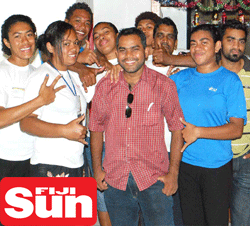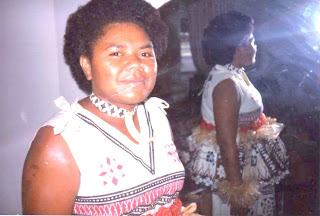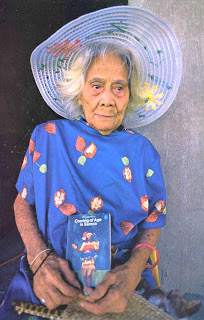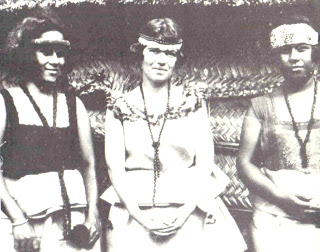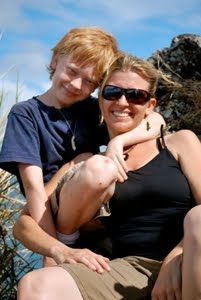
from w
The tribewanted project continues on Vorovoro Island near Labasa. Here is a posting from a sea-change family, which is on the
tribewanted website. While many visitors to Fiji continue to stay in the large resorts, eat expensive food, etc. with little interaction with the local people except in a tourist-staff worker relationsip, those who go to Vorovoro experience a real change in lifestyle and get to know the people from Vorovoro and Mali islands who are Peceli's relations.
A family perspective of Vorovoro... Community → Blogs from Vorovoro → Jenny Cahill's blogPhotos
By Jenny Cahill,
Posted 1 day ago
Just a couple months before arriving on Vorovoro, we made some exciting and scary major life changes in our family. Prior to these changes, we were like so many other middle class American families –we were stressed and burned out parents trying to squeeze the most out of the few hours we had per week together as a family, trying our best to raise kind, loving, conscientious, and capable children in a culture where it seemed everything was against our goals.
Despite our best efforts to keep our family a #1 priority, we had become slaves to busy schedules and endless obligations. Jimmy spent most of his time at a demanding and unfulfilling job that, while it provided well for us financially, left him with little time or energy foranything else. The job of raising and schooling our 3 kiddos fell primarily to me, and we felt that we were just enduring life, rather than enjoying it. Jimmy and I longed for a more balanced life, where we could both be present in our family while also sustaining our family financially in ways that fulfilled us rather than drained us. After years of this exhausting battle, we decided to change it all. With no solid plan in mind, we said goodbye to the 13 year career, the security, the generous paycheck. We traded financial security for happiness, fulfillment. We stepped into faith that we couldmake the life we wanted -simple, uncluttered, intentional, with time and energy for ourselves and our family,earning money through skills that we enjoy. We chose a summer of living in Vorovoro as a springboard for our family as we entered this exciting, new chapter of our lives.
Our family has been on Vorovoro for 6 ½ weeks now, and sadly, have just under 4 weeks more to go. Our time here has been the most intensely joyous time of our lives. We fled here from a culture that thrives on productivity, efficiency, and impersonal relationships, our hearts hungry for something that we did not yet know, but hungry just the same. Within days, maybe even hours, of setting foot on Vorovoro, our hunger had begun to satiate, and now I would say our hearts are content and full in ways they have never been before. Everything about this place is salve to the heart, food for the soul. Never before have we felt so connected to each other and to ourselves. Surrounded in beauty, laughter, and song, one cannot help but to see clearly how Western culture has gone wrong, how the hectic schedules and pressures of American life leave little room for the things nourish us our souls. It is this contrast that gives strength to our intentions to change the way we live our life in America, intentions that we brought with us to Vorovoro, hoping that we would find something here that would help us sustain those intentions in our life back home. We have found exactly what we were hoping for, and so much more. The unique community that is Vorovoro is amazing in ways that I find I just cannot describe.
The fellow tribe members we have spent time with have been just amazing – older folks with wisdom and stories to share, young travelers who impress us with their insight and maturity – remarkable role models for my children, and ourselves. Our Fijian family – warm hearts, open arms, hearty laughs. Their enthusiasm and joy are authentic and sincere, their playfulness and love of life are incredibly contagious. The ideals of the project areso in line with our own visions. It has beenhugelyrewarding to be part of a work in progress and see the results of your own hard work at the end of each day. The island allows freedom and independence for my children – they have grown in ways I never anticipated. Timid at first about meeting so many new people, they are now usually the first to meet and greet the new arrivals, eager to show them around the island.
Tribe members and Fijian family alike join in their playfulness – there is always someone willing to guide, listen, play, or with whom to simply share a laugh or an adventure. The line between work and play just doesn’t exist on Vorovoro – everything is exciting and fun. They join in on projects and discussions, their ideas and efforts are respected and appreciated. They are made to feel important – the kindness, gentleness, patience, and respect with which they have been treated havemade them aware of how capable they are. They move in and out of daily activities – working with the ladies in the kitchen, grating coconut, chopping paupau, or baking bread, or maybe clearing brush, catching bait, or weaving coconut leaves with the men. They’ve all formed their own close relationships with various members of our Fijian family.
They live their own lives here, set their own schedules, make their own goals – I have become aware of how much they are capable of. It has been inspiring and affirming to me to watch my children grow, become comfortable with new people and experiences, challenge themselves and see projects through to completion. As I hear their laughter ring through the village, when I see the joy they bring to others with their smiles and questions, when I listen to them tell me about the things they have learned from watching and talking to other people, I am filled with gratitude. More than ever before, I understand the old wise saying that goes: “It takes a village to raise a child.” Truer words have never been spoken.
Our time on Vorovoro has given us gifts that will be a part of us forever – we have experienced enduring and strong connections to ourselves, to each other, and to our goals and intentions for our family. We have formed relationships that will last the rest of our lives. The important lessons of slowing down, laughing much, and enjoying the moment we are in have become a part of us. Sega naleqa! A world away from our other life and the distractions that come with it, immersedin meaningful work and interactions, no longer running on the proverbial hamster wheel, we are beginning to learn to listen, really listen. And we like what we hear.Au lomaniiko, Vorovoro.Vinakavakalevu na wisdom.


 from w
from w

